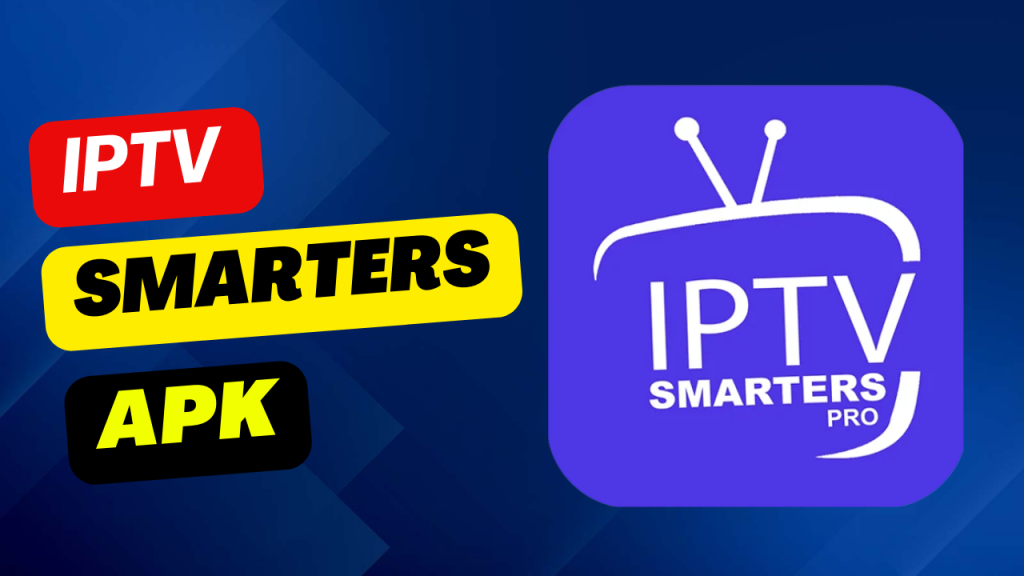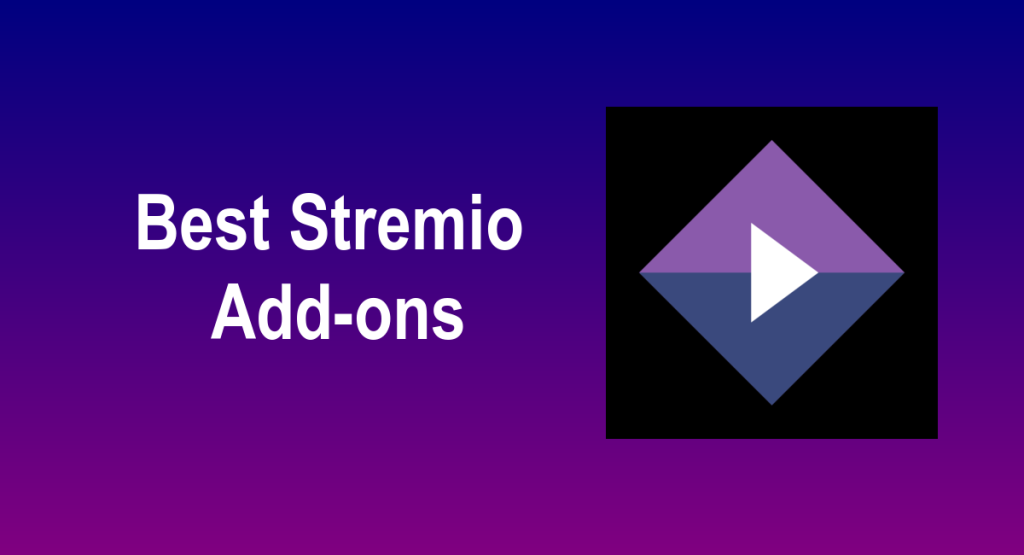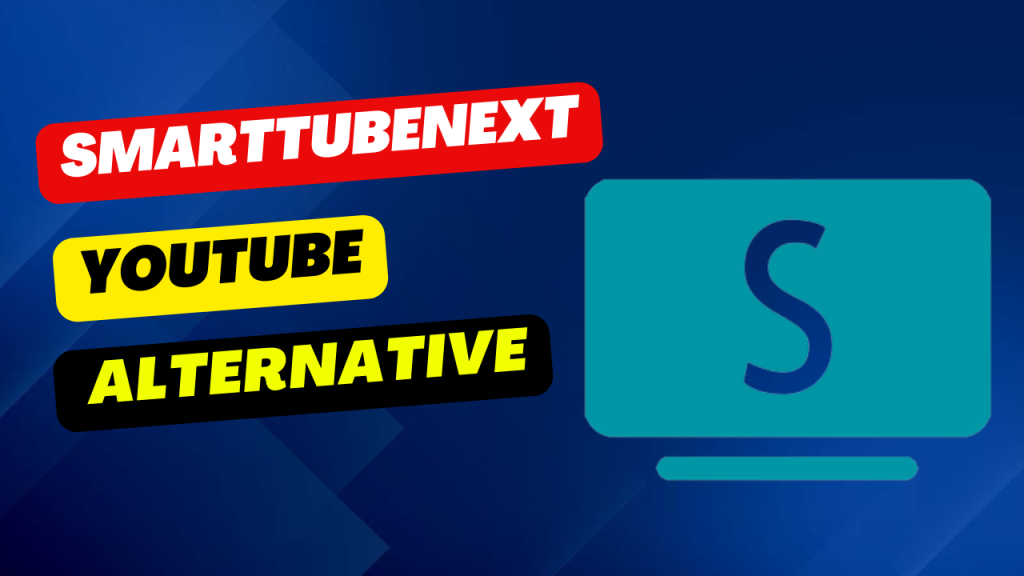In today’s dynamic world of smart home entertainment, Google TV and Android TV stand as giants, each offering a unique gateway to an immersive TV experience.
This guide provides the necessary information about the differences and similarities between these two platforms to help you make an informed decision when selecting your ideal living room companion.
Takeaway Points
| Aspect | Google TV | Android TV |
|---|---|---|
| User Interface | Content-centric with personalized recommendations | App-centric, akin to a traditional Android device |
| Content and Apps | Comprehensive recommendation system | Extensive library from Google Play Store |
| Smart Home Integration | Leverages Google Assistant for voice control | Seamless integration with smart home devices |
| Gaming Experience | Dedicated gaming interface with curated recommendations | Established gaming app ecosystem |
| Hardware Compatibility | Latest Chromecast with Google TV | Supported by various devices: smart TVs, set-top boxes, and streaming devices |
Google TV and Android TV: Understanding the Basics
Android TV and Google TV aim to enhance the TV experience by incorporating smart features. However, it’s important to note the main distinctions between the two platforms.
While both Android TV and Google TV strive to enhance the TV viewing experience, their approaches differ.
Android TV operates as an open-source Operating System, allowing manufacturers and developers to customize and adapt the software to their specific needs. This flexibility ensures a wide range of devices can run Android TV, including smart TVs, set-top boxes, and streaming devices.
On the other hand, Google TV serves as a smart TV platform that focuses primarily on content delivery. It offers a comprehensive ecosystem that seamlessly integrates streaming services, live TV, and on-demand content from various providers.
Google TV features a user-friendly interface that prioritizes content discovery and recommendations based on their preferences.
Google TV is the next stage of Android TV
Google TV is a new interface for Android TV that works with Google machine learning, the Google Assistant and the Google Knowledge Graph.
For starters, Google TV is not replacing Android TV, because Google TV is not an operating system. Google TV is a new interface built on the Android TV operating system. Rather than your home screen being dominated by apps that you have to explore separately, the new home screen interface on Google TV is primarily focused on content, Netflix-style. Google’s Shalini Govilpai explained:
We study the different ways that people discover media, from searching for a specific title to browsing by genre, and we create an experience that helps you find what to watch. We also made improvements to the Google Knowledge Graph, which is part of how we better understand and organize your media across themes and genres, from movies about space travel to reality shows about cooking. You’ll also see trending titles on Google Search, so you can always find something timely and relevant.
The Google Assistant is front and center, and you’ll probably be using the Google Assistant button on your Android TV, or for now, the Chromecast with Google TV. The Google Assistant and the Google Knowledge Graph come together to give you exactly what you’re asking for when you ask the Assistant to “find romantic movies” or “show me science fiction TV shows,” whether the shows are on Netflix, Disney +, HBO Max, or other services.

User Interface
Google TV and Android TV feature distinct user interface designs that cater to different user preferences, providing a tailored experience for individuals with varying viewing habits.

Google TV adopts a content-centric approach, prioritizing new shows and movies discovery. The interface presents users with personalized recommendations, trending content, and curated collections based on their viewing history and preferences.
In contrast, Android TV’s interface resembles traditional Android devices, leveraging an app-centric design. The interface showcases installed apps and allows users to access content and services directly from the home screen.
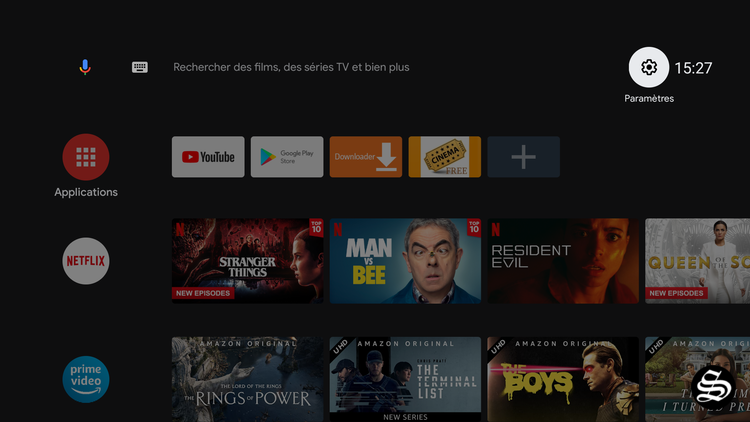
This familiar layout appeals to users already accustomed to the Android ecosystem, providing a seamless transition from their mobile devices to TV screens.
Both interfaces offer distinct advantages. Google TV’s content-centric approach is ideal for users seeking effortless content discovery, while Android TV’s app-centric design appeals to those who enjoy having quick access to specific apps and services.
Ultimately, the choice between the two interfaces comes down to personal preference and the desired user experience.
Additionally, both Google TV and Android TV allow users to customize their interfaces to better suit their preferences. Users can rearrange apps, pin their favorite content, and personalize the home screen to create a personalized viewing environment.
Content and Apps
Google TV and Android TV offer users a wide range of content and access to apps.
Google TV showcases its strength with a comprehensive intelligent recommendation system that takes into account user preferences, viewing habits, and content consumption patterns.
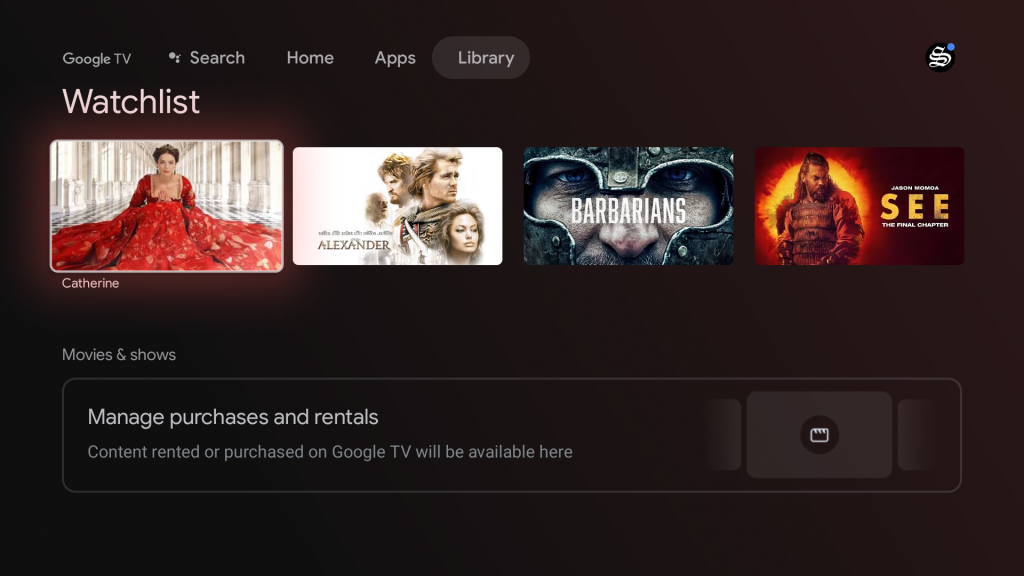
By leveraging advanced algorithms and machine learning, Google TV suggests personalized recommendations to users, making it easier to discover new shows, movies, and even trending content.
On the other hand, Android TV offers users access to a vast library of compatible apps available through the Google Play Store.
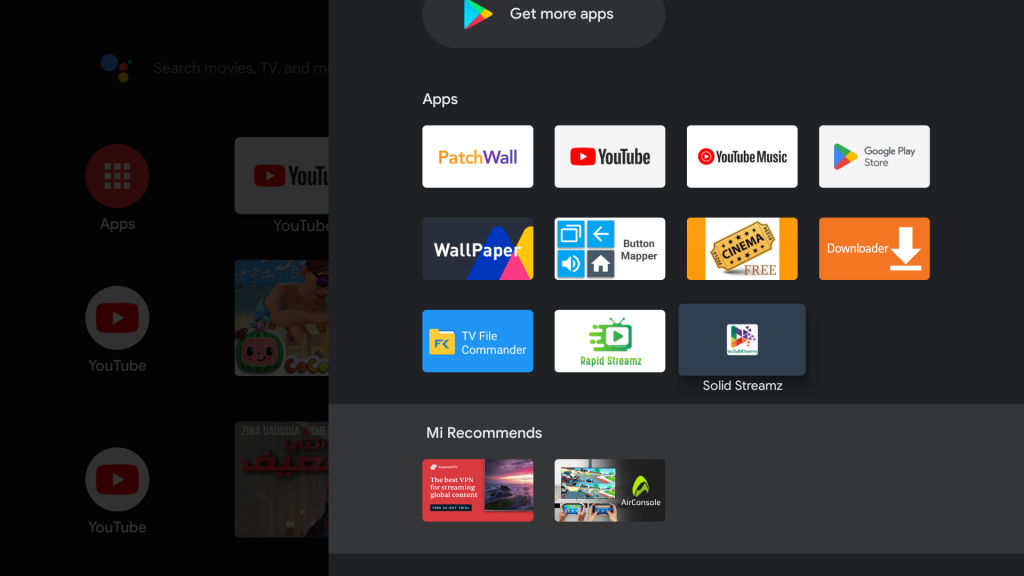
This expansive ecosystem allows users to download and install a variety of applications, ranging from popular streaming services to gaming apps and productivity tools.
Both Google TV and Android TV provide users with the flexibility to customize their entertainment environments. Users can organize their content, create watchlists, and prioritize their favorite apps for quick access.
Whether it’s through Google TV’s tailored recommendations or Android TV’s extensive app library, both platforms offer users the ability to personalize their entertainment experiences.
Whatever their preferences may be, users can rely on these platforms to deliver content and apps that align with their unique tastes, resulting in a more engaging, enjoyable, and personalized TV viewing experience.
Smart Home Integration
Both Android TV and Google TV excel in seamlessly integrating with smart home devices, enabling users to control their connected devices and create a more interconnected living environment.
Android TV integrates with a variety of smart home devices, offering users the convenience of controlling their connected devices directly from their TV screens.
Whether it’s adjusting the lights, thermostat, or even checking the security camera feed, Android TV provides an intuitive interface that simplifies smart home management.
Taking smart home integration a step further, Google TV enhances its functionality with the integration of Google Assistant. Google Assistant, a powerful voice-controlled AI, enables users to interact with a broader range of smart home technologies using simple voice commands.
By providing voice control capabilities, users can control their smart home devices without the need to navigate through menus or pick up a remote.
The integration of Google Assistant with Google TV extends beyond basic device control. Users can also use voice commands for other tasks, such as checking the weather, setting reminders, searching for information, and accessing a wide range of services.
This seamless integration enhances the convenience and efficiency of managing the smart home, allowing users to control and interact with their devices intuitively.
Gaming Experience
Both Google TV and Android TV deliver captivating gaming experiences for users who seek entertainment beyond traditional TV shows and movies.
While Android TV has a well-established gaming app ecosystem, Google TV takes gaming to the next level with a dedicated gaming interface and curated recommendations.
Android TV boasts a diverse and thriving gaming app ecosystem, offering users an extensive selection of games to choose from.
Users can download game apps directly from the Google Play Store and enjoy immersive gameplay on their TVs with compatible controllers or other gaming accessories.
The vast library of games ensures that users can find something to suit their gaming preferences, whether they enjoy action-packed adventures, puzzles, or multiplayer experiences.
In contrast, Google TV enhances the gaming experience with a dedicated gaming interface that curates personalized recommendations.
Leveraging its deep understanding of users’ preferences, Google TV suggests games tailored to individual tastes, making it easier to discover new and exciting gaming experiences.
By presenting careful recommendations, users can explore games beyond their usual preferences and find hidden gems that align with their gaming preferences.
Both Google TV and Android TV provide users with the flexibility to connect gaming accessories, such as controllers, to enhance their gaming experience. This enables users to immerse themselves fully in the gameplay, whether they prefer racing, action, or other genres.
Hardware Compatibility
When it comes to hardware compatibility, Google and Android TV offer different levels of versatility. While Google TV is specifically designed for the latest Chromecast with Google TV, Android TV is compatible with a wide range of devices, including smart TVs, set-top boxes, and streaming devices.
Google TV excels in delivering a unified and refined experience on the Chromecast with Google TV. By designing the platform specifically for this hardware, Google ensures that users can fully utilize the capabilities of the device, taking advantage of its powerful hardware and optimized software integration.
The result is a smooth and cohesive user experience, with Google TV working in harmony with Chromecast, providing a top-notch entertainment experience.
On the other hand, Android TV offers greater flexibility in terms of device compatibility. As an open-source platform, Android TV can be customized and adapted by manufacturers and developers to suit a wide range of hardware configurations.
This compatibility extends to smart TVs from various brands, set-top boxes, streaming devices, and other media players.
Android TV’s compatibility allows users to choose the hardware that best fits their preferences and requirements, providing a versatile ecosystem that can be integrated into their existing home entertainment setup.
The compatibility of Android TV with different devices ensures that users have access to its extensive features and functionalities, regardless of their preferred hardware. Whether it’s a large-screen smart TV or a compact streaming device, Android TV accommodates diverse consumer needs across various platforms.
Google TV Evolution
Google TV has evolved into a powerful interface that combines cutting-edge technologies such as machine learning, Google Assistant, and the Knowledge Graph to provide a personalized viewing experience.
Seamlessly integrated with the Android TV operating system, Google TV has redefined content discovery and transformed the way users engage with their TVs.
The integration of machine learning within Google TV has significantly improved the platform’s ability to understand user preferences and consumption patterns.
By analyzing data such as viewing habits, search history, and content preferences, Google TV utilizes advanced algorithms to deliver tailored recommendations that resonate with individual users.
This intelligent recommendation system ensures that users can easily discover new content that aligns with their interests, expanding their viewing horizons and creating a more engaging entertainment experience.
One of the standout features of Google TV is the integration of Google Assistant, a voice-activated AI assistant.
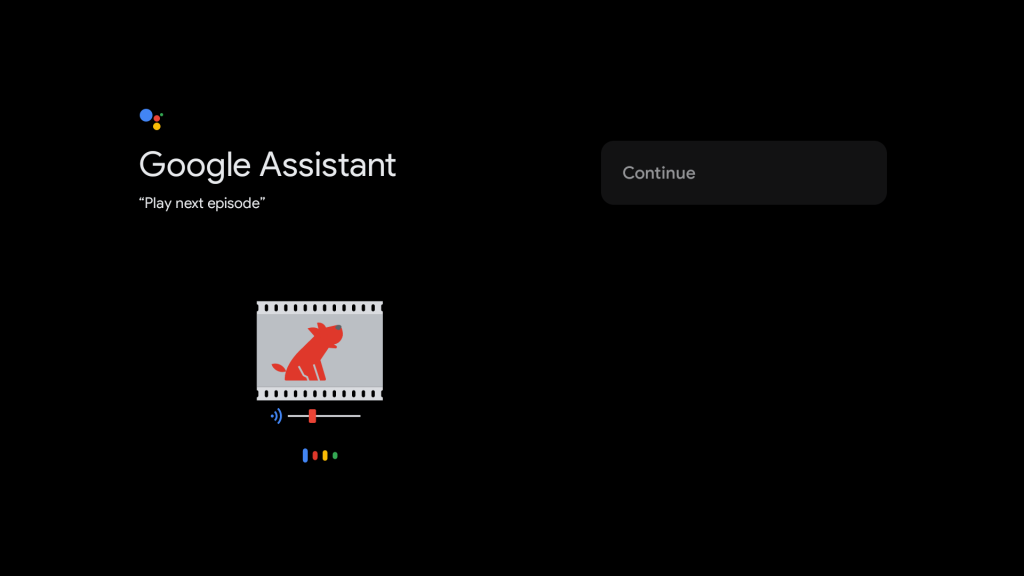
With Google Assistant, users can interact with their TVs using natural language commands to control and navigate the interface.
Users can ask Google Assistant to search for specific shows or movies, adjust volume levels, or even inquire about the weather or other information.
Furthermore, Google TV leverages the Knowledge Graph, a knowledge base that connects information from various sources to provide contextually relevant results.
With the Knowledge Graph access, Google TV can provide users with additional information about the content they are watching, such as cast details, plot summaries, and related recommendations.
Utilizing the power of machine learning, integrating Google Assistant, and accessing the Knowledge Graph, Google TV has revolutionized content discovery, making it easier for users to find and connect with the entertainment they love.
Future Prospects and Continuous Updates
The battle between Google TV and Android TV is an ongoing competition that drives continuous updates and advancements in the realm of smart home entertainment technology.
As both platforms strive to outshine each other, users stand to benefit from the continuous stream of updates and innovations.
The prospects for both Google TV and Android TV look promising. With each update, these platforms introduce new features, improved functionality, and enhanced user interfaces.
By staying at the forefront of these innovations, they can leverage the latest features and functionalities that enhance content discovery, interaction, and overall entertainment value.
Continuous updates strive to optimize content recommendations by leveraging machine learning algorithms and artificial intelligence to deliver more accurate suggestions, helping users uncover hidden gems and explore new genres.
Advancements in smart home entertainment technology are also geared toward creating a more seamless and connected experience.
Integration with other smart home devices and platforms allows users to control their TV and entertainment experiences through voice commands or mobile apps.
Streamlining the process of navigating content, adjusting settings, and managing multiple devices enhances convenience and simplifies the overall entertainment ecosystem for users.
The battle between Google TV and Android TV fosters healthy competition, pushing both platforms to continuously improve and innovate.
The prospects for Google TV and Android TV are strong, with continuous updates and innovations driving the battle between these platforms.
Google TV vs. Android TV: A Quick Comparison Table
| Aspect | Google TV | Android TV |
|---|---|---|
| Discovery | AI-driven content discovery for a personalized experience | App-based recommendations tied to installed streaming apps |
| Live TV | Features a dedicated tab with previews of active broadcasts | Traditional app-based live TV experience |
| Smart Home Devices | Offers extensive compatibility with Google Home devices | Seamless integration for smart home control directly from the TV |
| Parental Controls | Supports multiple user profiles with personalized recommendations | System-wide parental controls for content restrictions |
| Mobile Remote | Mobile remote functionality through the Google TV app | Traditional remote control usage |
Conclusion
Deciding between Google TV and Android TV requires careful consideration of your individual preferences and requirements.
Each platform offers unique features and benefits, making it important to explore both options before making an informed decision that aligns with your specific needs.
Google TV stands out for its seamless integration with the latest Chromecast with Google TV. It offers a refined interface that leverages machine learning, Google Assistant, and the Knowledge Graph to personalize the content discovery process.
If you already own or plan to invest in the Chromecast with Google TV, Google TV may be the ideal choice for you.
On the other hand, Android TV offers greater device compatibility, allowing you to choose from a wide range of smart TVs, set-top boxes, and streaming devices.
Its versatility makes it a flexible option that can adapt to different hardware configurations.
To make the right decision, take the time to assess your priorities. Consider factors such as the devices you currently own or plan to purchase, your desired level of personalization, and access to specific features or applications.
It may also be beneficial to read reviews, seek recommendations, and gather insights from those who have experience with either Google TV or Android TV.
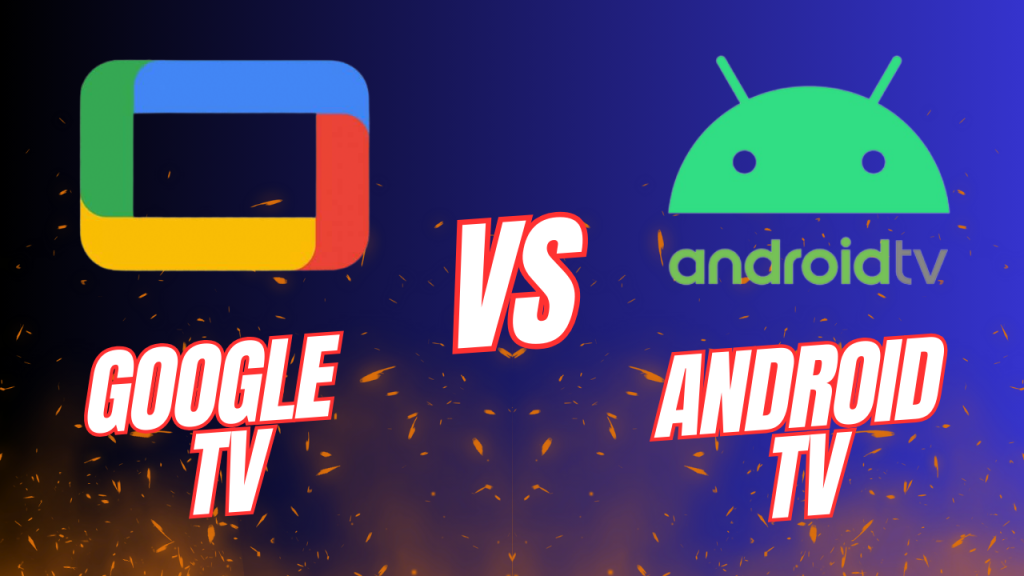
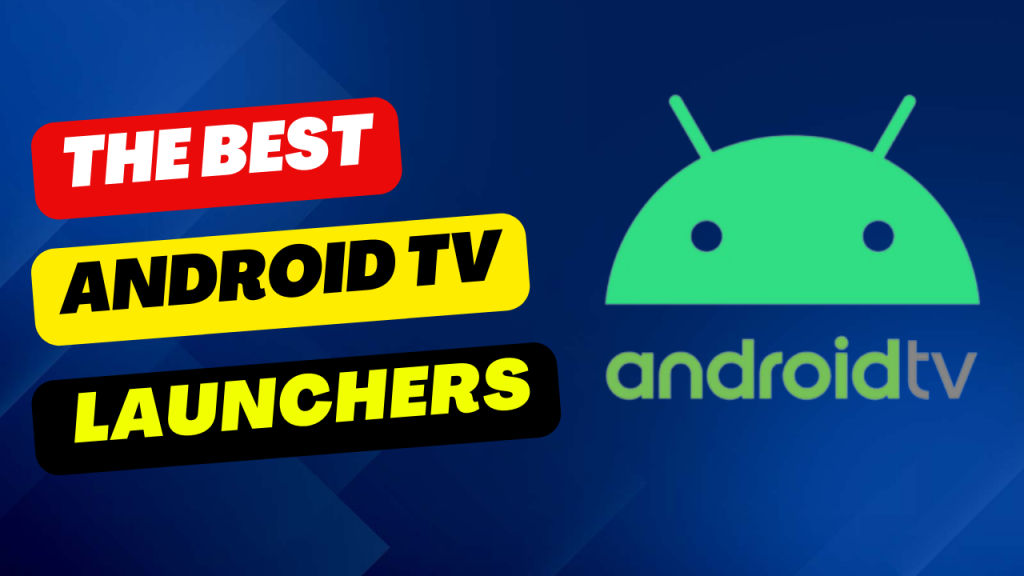

![The Best Web Browsers For Firestick & Android TV in [2023]](https://simturax.com/wp-content/uploads/2023/10/Yellow-White-Bold-Best-AI-Websites-YouTube-Thumbnail-1-1-1024x576.png)
